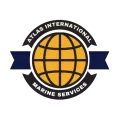
The UK government has recently unveiled a £1.5 million initiative aimed at establishing zero-emission shipping routes, marking a significant step towards sustainable maritime travel and trade.
This initiative is part of the broader commitment to achieve net-zero emissions and foster economic growth without burdening taxpayers.
Bidding for a Greener Future
A bidding process has been launched for the £1.5 million fund, which is set to support feasibility studies for the development of green corridors.
These studies will focus on mapping out the necessary infrastructure, costs, and regulatory measures required for the decarbonization of shipping routes.
International Collaboration
The initiative is not just a UK-centric effort but an international collaboration. The UK aims to establish zero-emission shipping routes with the Netherlands, Norway, Denmark, and Ireland.
This will create cleaner journeys for both passengers and freight, while also generating new jobs and boosting the economy.
Funding and Support
The £1.5 million fund is part of the wider £206 million UK Shipping Office for Reducing Emissions (UK SHORE) program.
Match-funding is provided by Ireland and the Netherlands, with additional contributions from Denmark and Norway.
The UK-Ireland competition will open for bids on 15 April 2024, followed by the UK-Netherlands competition on 3 June 2024.
Stakeholder Endorsement
The initiative has garnered positive feedback from various stakeholders, including the Global Maritime Forum, the UK Chamber of Shipping, Innovate UK, and the British Ports Association.
The CEO of the UK Chamber of Shipping, Rhett Hatcher, highlighted the importance of considering a broad range of fuels and technologies to ensure the necessary infrastructure is in place.

The Clean Maritime Demonstration Competition (CMDC)
The funding forms the fifth round of the Clean Maritime Demonstration Competition (CMDC), which has previously awarded a total of £128 million to support the maritime industry’s transition to sustainable practices.
The CMDC focuses on developing a range of clean maritime technologies, including electric, hydrogen, ammonia, methanol, wind power, and more.
The Path to Net Zero
The UK’s commitment to decarbonization is clear, with the Clydebank Declaration for Green Shipping Corridors at COP26 being a notable milestone.
The initiative aims to achieve net-zero commitments without increasing costs to the taxpayer. By the mid-2020s, the goal is to have international zero-emission routes in place.
The Maritime Sector’s Economic Contribution
The maritime sector is a significant contributor to the UK economy, with an annual contribution of up to £13.8 billion and 260,000 jobs.
IMO has set a target to reduce greenhouse gas emissions from international shipping by at least 50% by 2050, creating opportunities for investment in alternative fuel-powered vessels.
The UK’s Maritime Innovation
The UK is at the forefront of pioneering environmentally friendly shipping and embracing green technologies across the industry.
With a projected annual value of £13 billion by 2030 for the shipping technology sector, the UK is driving digitalization and marine autonomy.
British companies such as AutoNaut, MSubs, and Coda Octopus are leading in environmentally friendly, autonomous maritime technology.
Conclusion
The UK government’s £1.5 million initiative for green maritime routes is a visionary step towards a sustainable future for international shipping.
This initiative promises not only environmental benefits but also economic growth and job creation, aligning with the broader goals of the UK’s maritime strategies.
Found this article interesting, and useful? Please feel free to interact, recommend and share.
If you have any questions about this topic or would like to discuss your own business needs, please contact us today!
